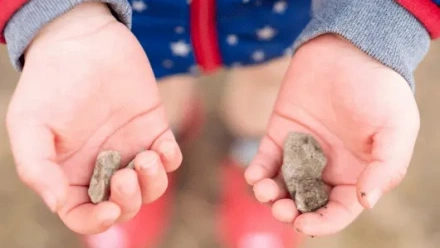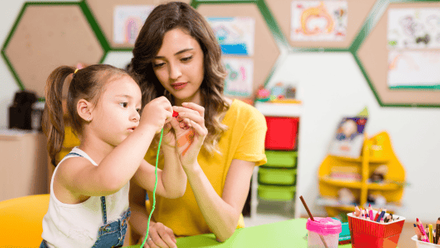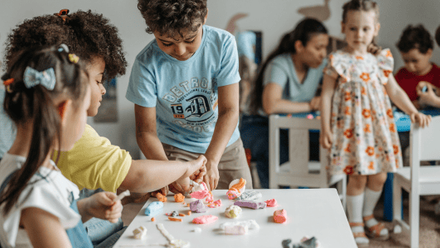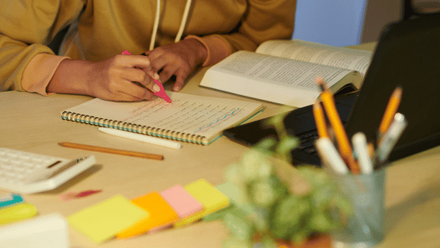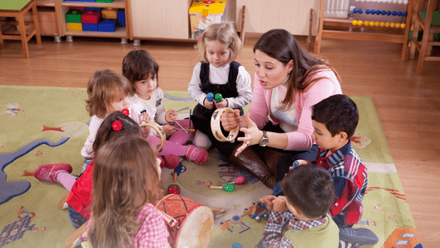Reflective practice in early education and care
The whole purpose of education is to turn mirrors into windows
Sydney J. Harris
We never stop learning. It’s fascinating that we can learn new things every day and constantly develop our understanding of the world around us long after we leave school. In our personal lives or the professional environment, reflecting on our behaviours and the choices we make daily can help us understand how to make things better.
Reflective practice is valuable for everyone. It helps us become the best we can be. Taking a new perspective on our actions creates the opportunity for us to see what has gone well and what could be improved. For early education and care professionals, no two days are the same so it’s important that we develop strong practice to adapt to new situations. We can reflect on these daily choices to use our experiences in future situations.
In this article, we are going to explore what reflective practice means and how it can be used in early education and care to help you to thrive in and outside of work.
What is reflective practice?
When you look in a mirror, what do you see?
Reflecting on our practice means examining our actions and behaviours to evaluate our strengths and identify ways to get even better. Within an educational environment, reflective practice is “the active consideration and appraisal (of an activity or moment) and the process of drawing some conclusions about what happened and then acting upon them”. Reflection isn’t just one act but an ongoing process to learn and grow which means it is something that we constantly do in a variety of ways by looking at things from many perspectives.
Early education and care is a sector that is constantly moving and growing so it’s important to keep our practice up to date too. In fact, it is considered as so important to evaluate our practice, it is a compulsory standard of performance to qualify as an Early Years Teacher in England. By demonstrating our ability to critically review our professional conduct, pedagogical approach and values, we have a special opportunity to continually develop as professionals and remain up to date in our practice.
It’s not just our practice that improves! Ability to reflect allows us to become more critical of our own practice and empathetic towards others, creating a positive space for development and growth whilst appreciating the value of our strengths.
How do we use reflective practice?
I'm not sure what I did well...
It can be tricky to reflect on our own actions in a positive way because, naturally, we are our own worst critics. Self-reflection is not only about identifying the ways we could improve on our practice, but also about finding our strengths. If an aspect of your activity went extremely well, it is valuable to highlight it so as to continue in the future in the same vein.
- Ask others in the room how they thought the interaction went. Observations are a big part of reflective practice so implementing informal observations with your team creates a focused time to really get to grips with reflections in your work.
- Go with your gut feeling: what aspects of the interaction did you enjoy? The chances are the things we feel good about are the things that others thought went well too.
But what if it all went horribly wrong?
When things go wrong, it feels bad. Children are all unique and what works one day might not work the next. But every interaction is one to learn from, even the really bad ones! We can all get upset about things not going the way we wanted, but it is important to return to the conversation about how we can change things for next time. The only way we learn is by making mistakes and moving on from them. Building this sense of resilience is intrinsic to becoming a great reflective practitioner.
- Talk to others. There might be a perfectly reasonable explanation as to why something did not go to plan today. Finding out more context can be helpful for evaluating how much needs to change, or whether it was just a bad day.
How do I know what the children thought about it?
A question you might ask when reflecting on practice within early education and care is ‘did we achieve the intended learning outcome?’ For older children, this can be easier to identify when asking questions to formatively assess their understanding. But, for younger children not yet able to articulate their thoughts verbally, we need to do some observing of own…
- Observation, assessment and planning (OAP) are an essential framework to working with children in early education and care. To be confidently reflective on our interactions, we need to understand how we can identify the impact we have and what the next steps will be for the children and for us.
What do I do with my reflection now?
Reflections don’t always have to be formal, written and evidenced. They can be as simple as a ponder on the bus home or a casual chat on lunch break with colleagues. Nonetheless, demonstrating a strong reflective approach within your work is great for staff supervisions and highlights to managers that you are keen to create a thriving educational space for the children in your care.
For those undergoing training, it is often a requirement of the qualification to demonstrate your ability in how you reflect on your practice so getting into the habit of writing some of these down can also benefit you from an educational perspective of your own.
Key points to remember
- Reflecting on our practice is an important part of working within early education and care because it allows us to evaluate our work and make changes to our approach where needed. This creates the best possible environment for the children in our care to grow and flourish.
- Reflections aren’t always about improving on weaknesses but also about identifying our strengths and finding ways to extend them.
- It can be difficult to find the time to formally reflect on our day but reviewing moments in an informal manner is equally beneficial to making improvements.
Reflective practice is a term that is thrown around quite a bit in early education and care, but it is a valuable one when done properly. Take some time to thoughtfully consider your day’s interactions and think about what went well, what made you smile and what could be done even better next time.

